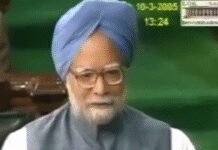NEW DELHI: Settling divergent judicial pronouncements on the scope of judicial interference in an arbitral award, a five-judge bench of Supreme Court on Wednesday said that to avoid protracted litigation, courts have powers to modify an award to sustain it by severing the ‘invalid’ portion from its ‘valid’ part rather than quashing it entirely.
A bench of CJI Sanjiv Khanna, CJI-designate B R Gavai and Justices Sanjay Kumar, K V Viswanthan and A G Masih was grappling with a long-standing grey area – when the Arbitration and Conciliation Act, 1996, does not expressly permit courts to modify or vary an arbitral award, should courts strike down awards even when it could be saved by minor modifications? Under Section 34 of the Act, a court can only strike down an award.
Writing the 37-page 4:1 majority judgment, CJI Khanna said, “We are of the opinion that modification represents a more limited, nuanced power in comparison to the annulment of an award, as the latter entails a more severe consequence of the award being voided in toto.”
“The limited and restricted power of severing an award implies a power of the court to vary or modify the award. It will be wrong to argue that silence in the 1996 Act, as projected, should be read as a complete prohibition,” he said. Justice Viswanathan penned a 130-page dissent and said courts do not have the power to modify an award as the parties had eschewed the path of litigation to go for arbitration.
CJI Khanna said, “We are thus of the opinion that the court can apply the doctrine of severability and modify a portion of the award while retaining the rest. This is subject to parts of the award being separable, legally and practically.”
The majority judgment said courts can also correct clerical, computational and typographical errors apparent in the award and modify the post-award interest rate. CJI Khanna said striking down an award in its totality just because there was no agreement over rate of interest would cause grave prejudice to parties, who would then have to undergo a fresh round of arbitration.
“This limited power is significant, as it can help avoid further rounds of litigation. Without it, the court may be forced to set aside the entire award or order a fresh round of arbitration because of an erroneous interest rate rather than simply adjusting this rate,” the CJI said.
Referring to the extraordinary powers of SC under Article 142 of the Constitution, which enables it to pass any order for the purpose of doing complete justice, the five-judge bench sounded a caution and said this power must be exercised with great care and caution while dealing with arbitral awards.









